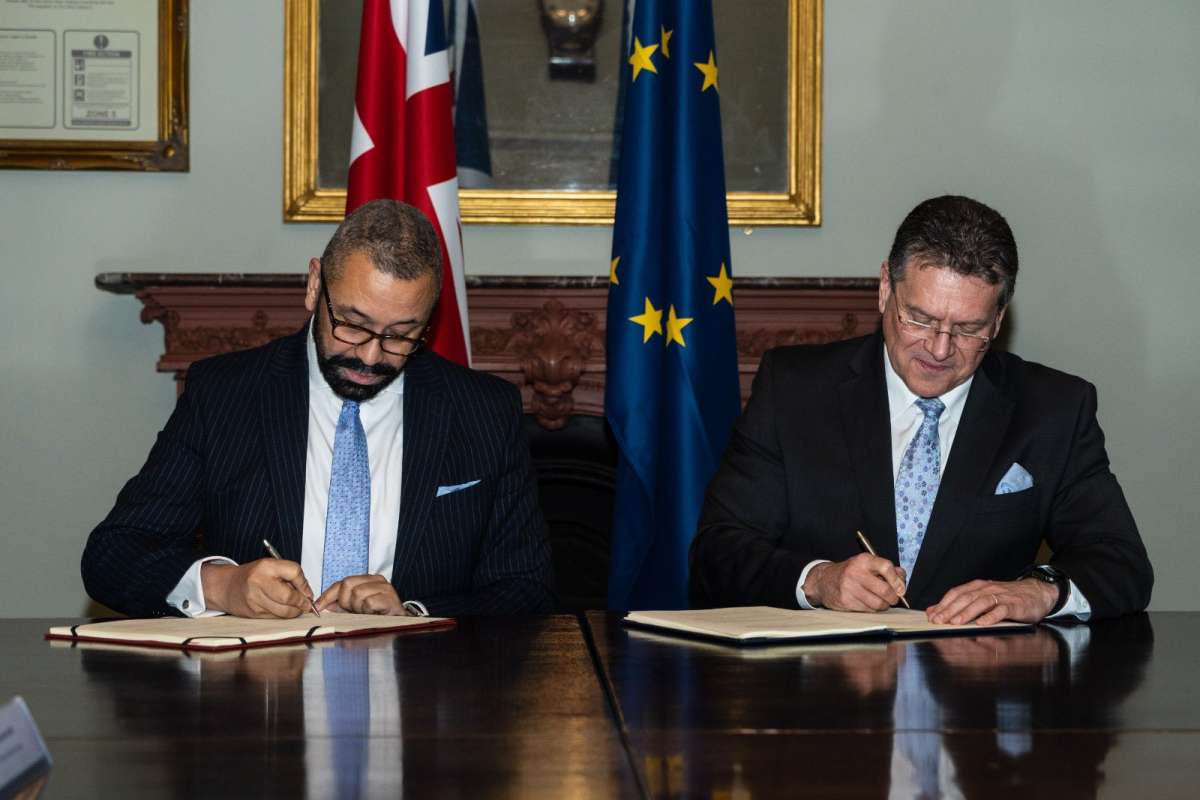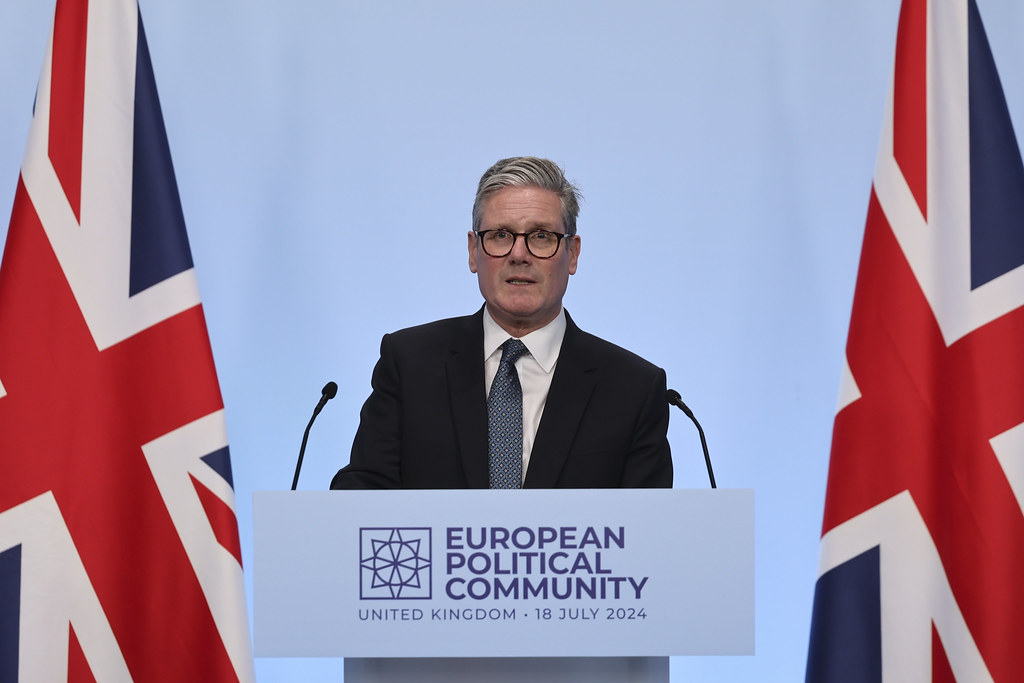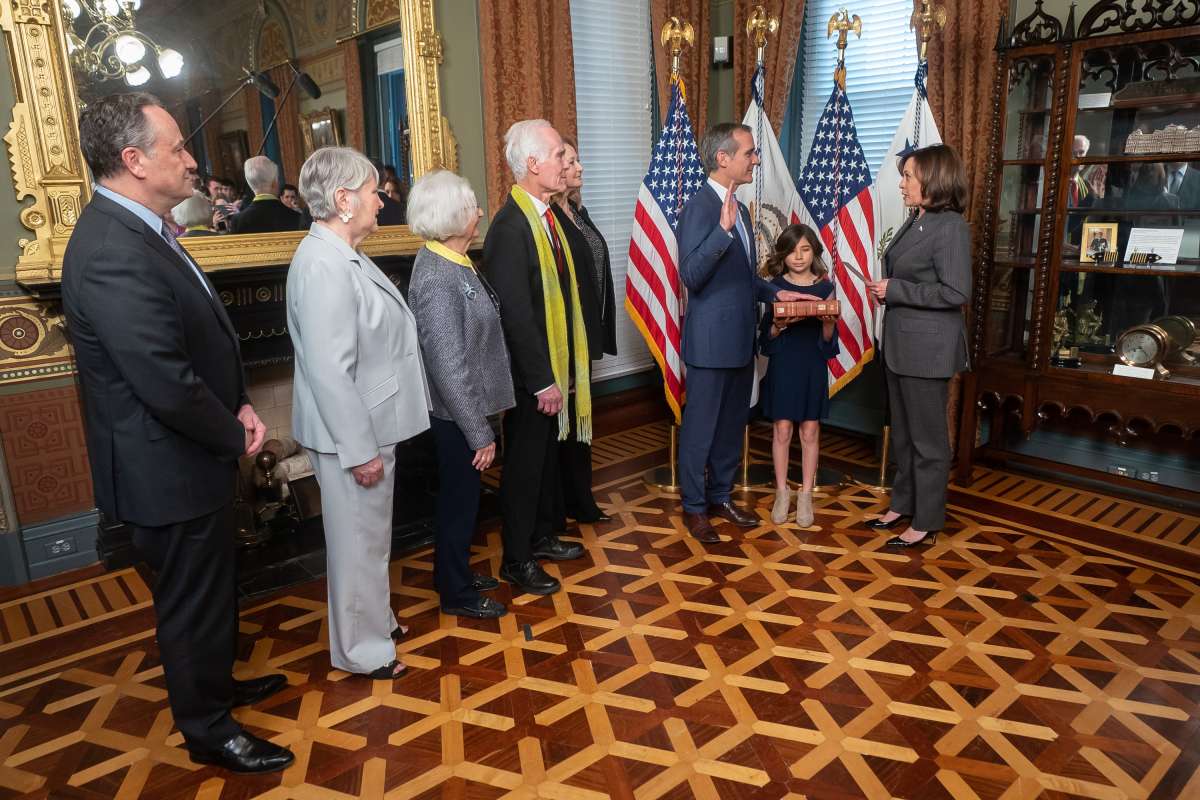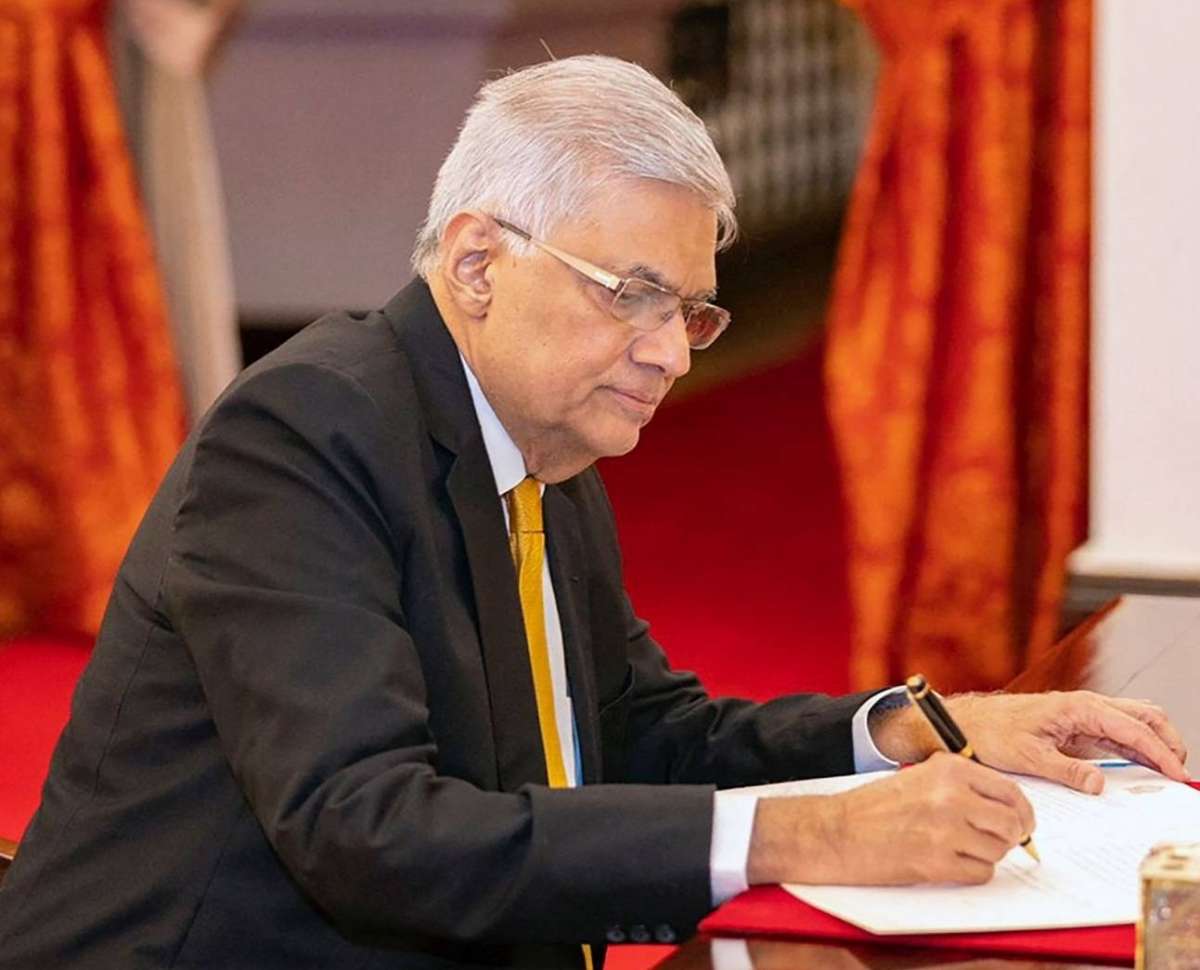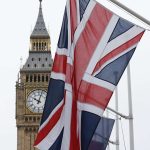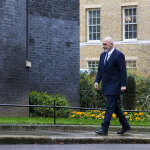UK and EU signed off the “Windsor Framework” deal during a meeting in London on Friday.
A new deal aimed at easing post-Brexit trade tensions in Northern Ireland was formally adopted by the UK and the European Union (EU), the two sides announced in a joint statement.
British Foreign Secretary James Cleverly and European Commission Vice President Maros Sefcovic signed off the “Windsor Framework” deal during their meeting in London on Friday.
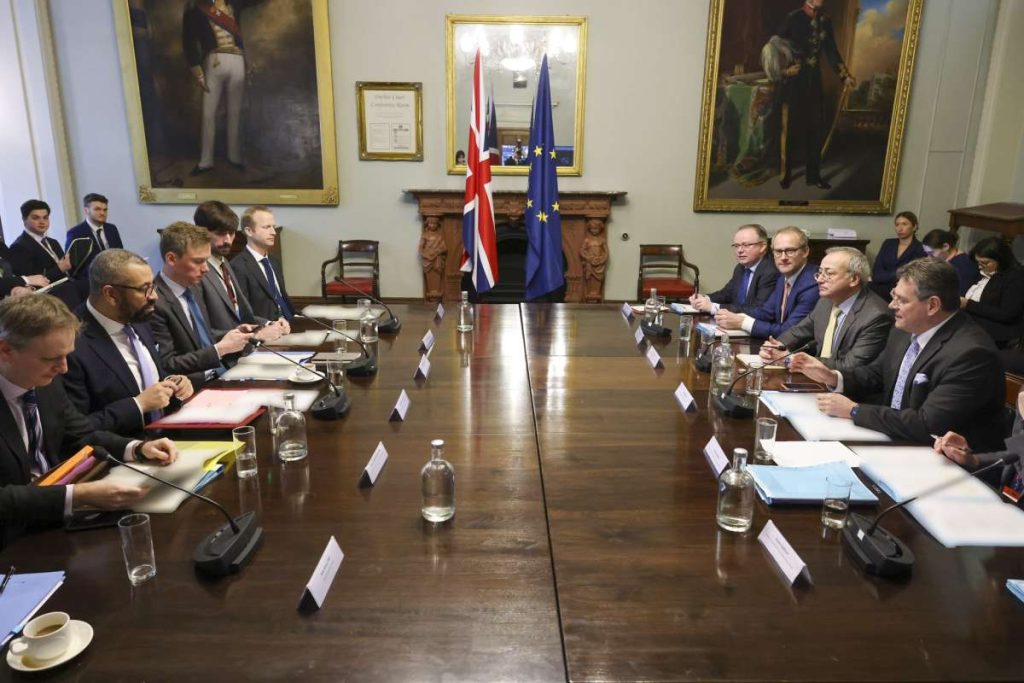
According to their joint statement, both the UK and the EU had taken a “positive approach” and “reaffirmed their intent” to use the framework to resolve any future trade issues.
The content of the new deal was finalised in February after long negotiations.
It aims to resolve the trading issues created by its predecessor, the Northern Ireland Protocol, which imposed border checks on British goods arriving in Northern Ireland.
Following the signing of the deal, Sefcovic said the EU would continue listening to everyone in Northern Ireland and continue its commitment to the peace process, the BBC reported.
He said both sides had “listened, understood and acted for the benefit of both our interests”.
“Now the Windsor Framework is the result of that genuine engagement and shared vision,” he said.
On his part, Cleverly said the negotiations had been “thoughtful, professional and in the spirit of friendship and cooperation”.
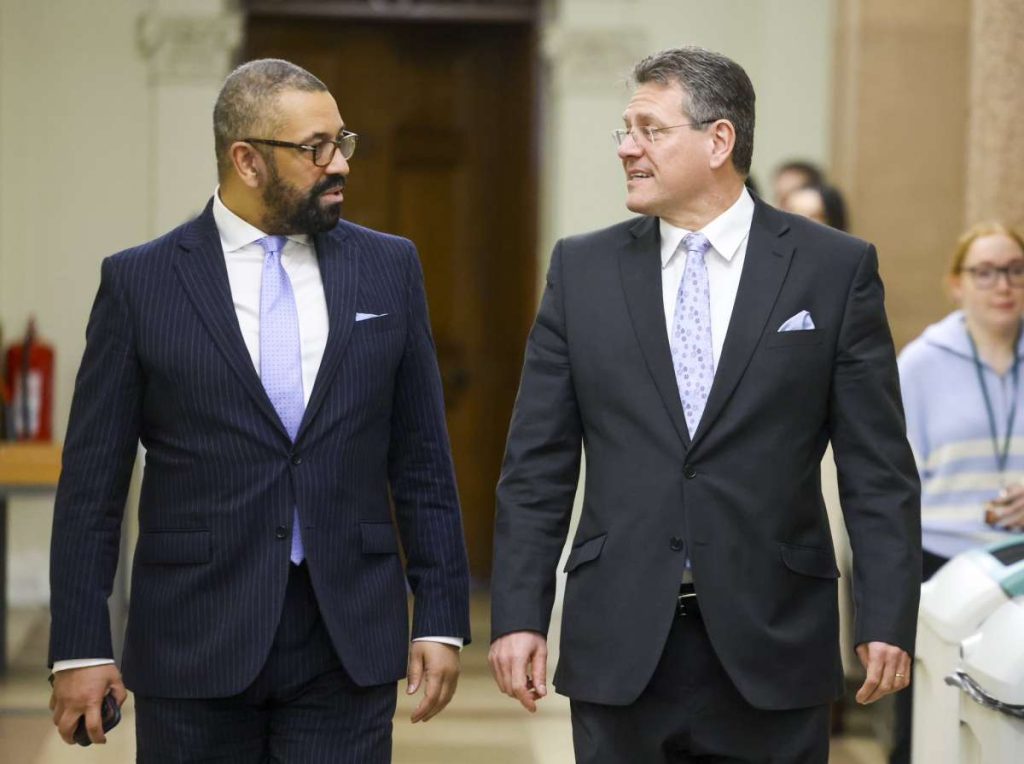
“What we achieved was… something which protected the EU’s single market, protected the UK’s internal market but most importantly protected the elements of the Belfast Agreement,” he said.
As a central element of the new deal, the “Stormont Brake” — taking on the Irish name of the Northern Ireland Assembly — is intended to give Northern Ireland’s lawmakers more say over EU rules set to apply in the region.
While Northern Ireland’s political parties broadly support the framework, the Democratic Unionist Party (DUP) has questioned how the “Stormont Brake” will operate.
As a sign of protest, the party has refused to join the power-sharing government at the Stormont for over a year, undermining political stability.
Reacting to Friday’s development, DUP MP Gregory Campbell said the ratification was “not the final word”.
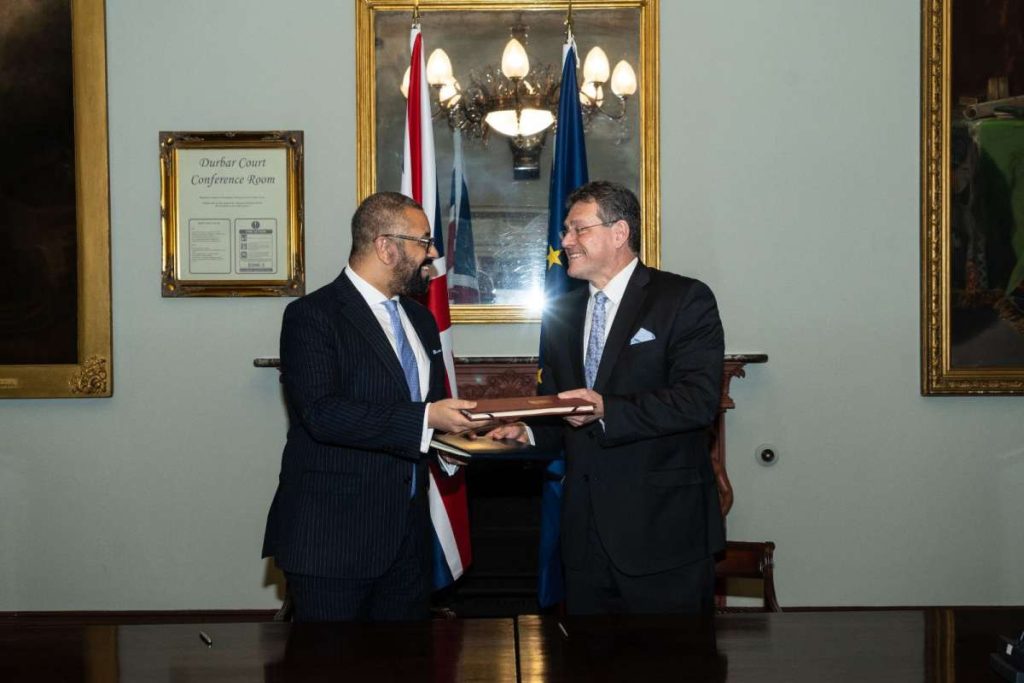
“It has to come back to the people of Northern Ireland,” he said.
“That’s the bottom line. The unionist community don’t buy into this process – what part of that does he (Rishi Sunak) not get?
“That’s what they have to address – both communities have to buy in and we don’t buy into this one so we have to alter, change or adapt it,” he said.
“If it’s take it or leave it – we’re not going to take it.”
ALSO READ: India, UK hold discussions on bilateral, security cooperation


